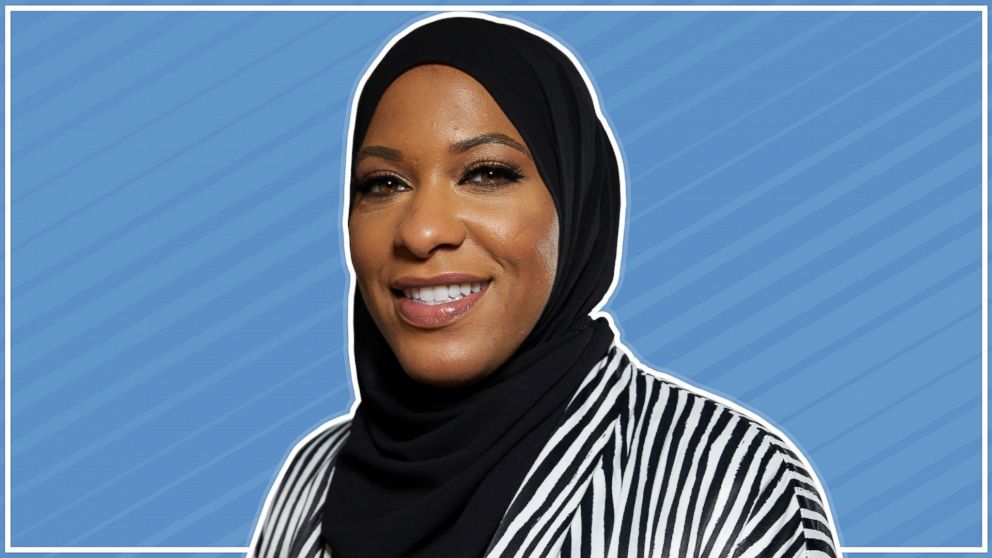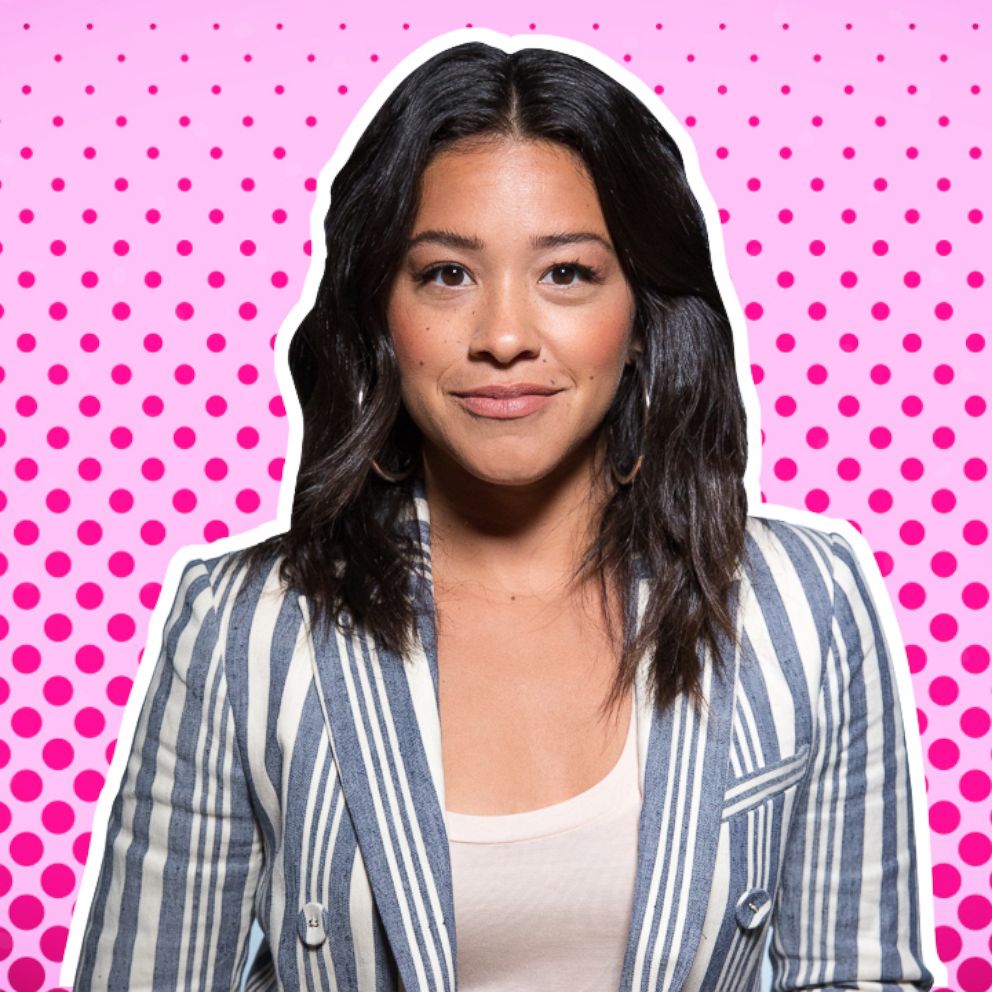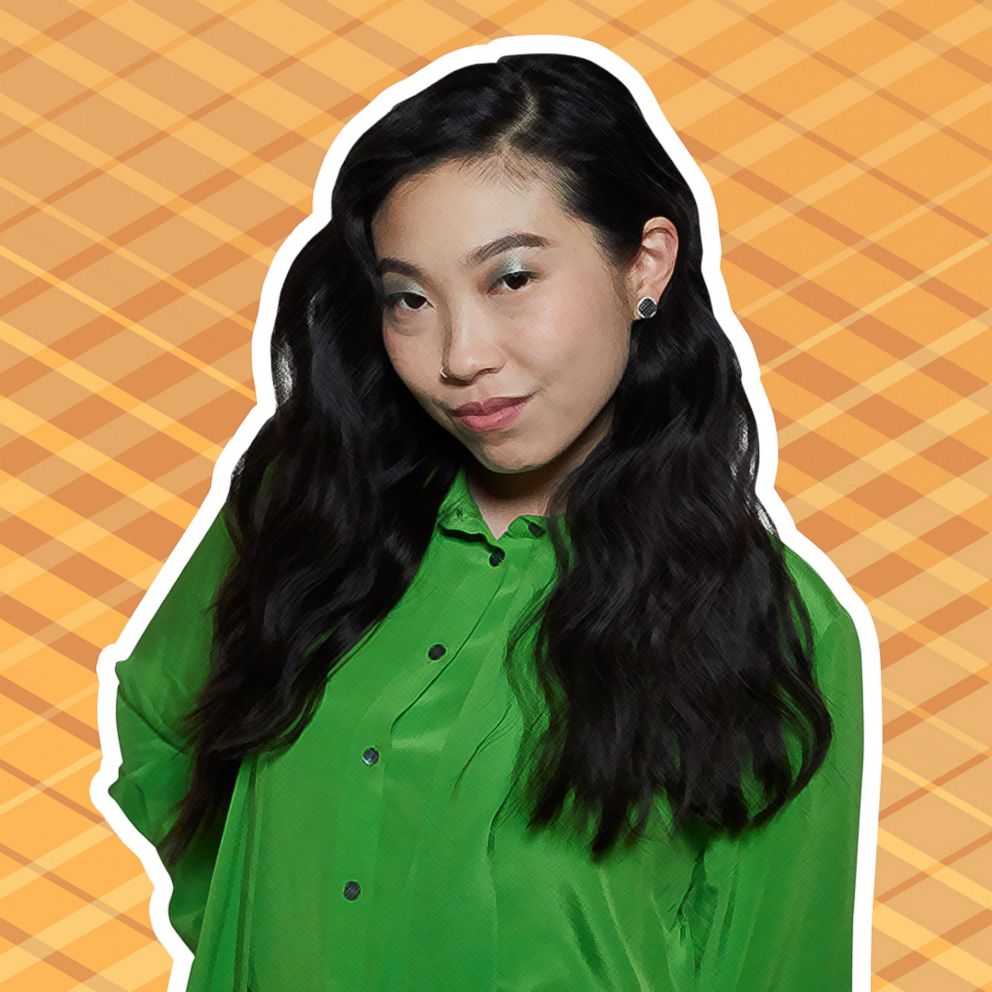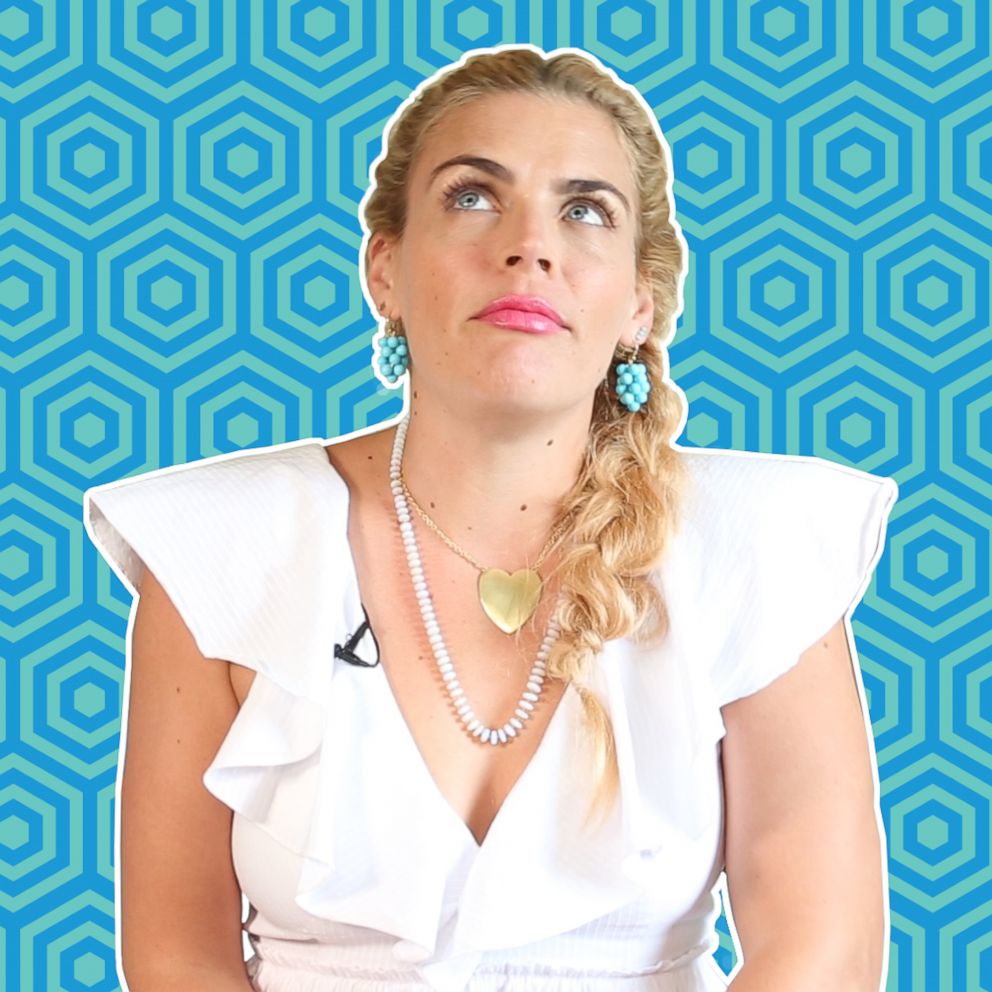Take it from Olympic medalist Ibtihaj Muhammad: 'It's not easy being the first'
The athlete took home bronze with Team USA in the Team Sabre event in 2016.
Ibtihaj Muhammad has a lot of titles -- fencer, entrepreneur, sister, Olympic medalist, Muslim, feminist.
Each title is of equal importance to her, but you might recognize her as the first Muslim-American woman to earn a medal in the 2016 Olympics.
Muhammad took home bronze with Team USA in the Team Sabre event.
Before she was breaking barriers, she was just another American girl struggling to fit in.
The 32-year-old struggled to feel accepted by her peers growing up in New Jersey. Mostly everyone was white, hardly anyone was Muslim, she recalls in her memoir, "Proud: My Fight for an Unlikely American Dream."
She always had a very strong sense of family, but when it came to friends and recreational life, "I didn't always feel like I belonged," she told "Good Morning America."
It sounded like Muhammad had some great life lessons to give so we decided to dig up some old photos of her to see what advice she would have for young Ibtihaj.
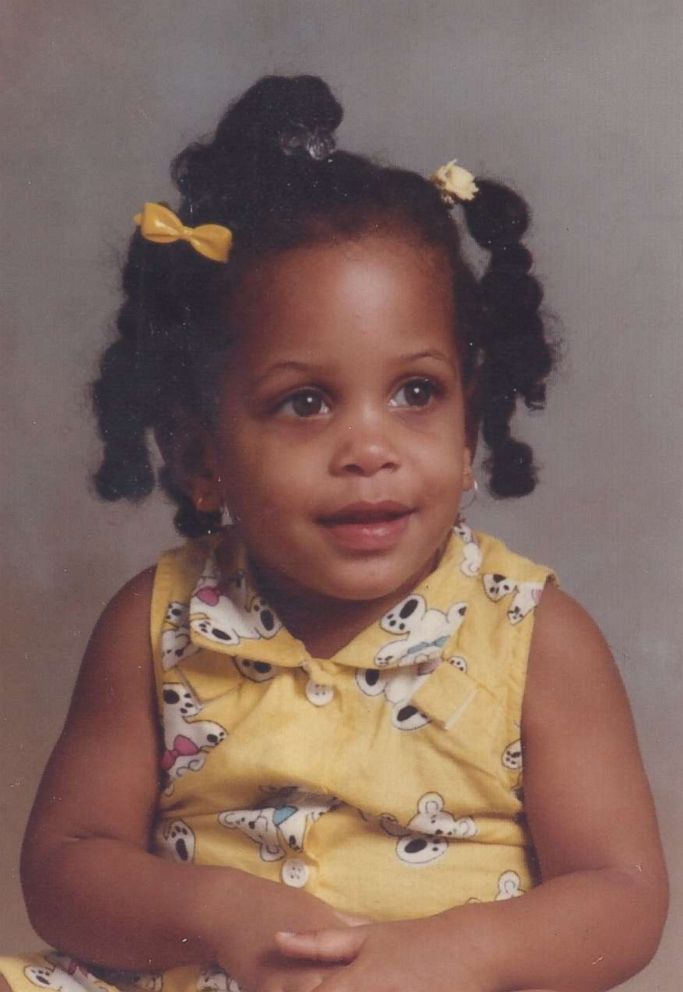
Learn to crawl before you can walk
Two-year-old Ibtihaj is rocking barrettes in her hair in this photo. "[This photo] reminds me so much of my niece, who's that age right now," Muhammad said.
The advice she would give herself at that age?
"Walking is a little difficult right now, but you'll get it," she laughs.
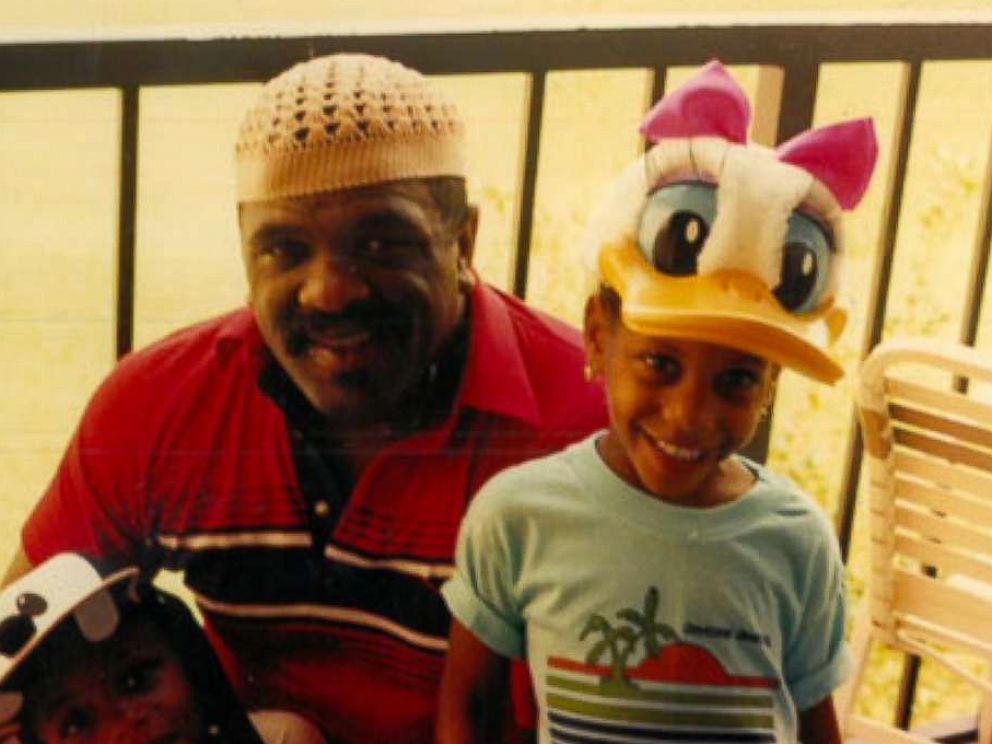
Celebrate your individuality
Fast-forward a few years and you'll find this photo of a 5-year-old Ibtihaj and her father around the time they moved into her childhood home in Maplewood, New Jersey.
"I grew up in a town that wasn't as diverse as I wish that it were," Muhammad said of her upbringing.
It was a struggle sometimes, she said, to be the only person of color in her classroom -- and oftentimes on the athletic field.
"I think one of the great things about being different is that we bring different things to the table, in the sense of our individuality, and I think that's something that should be celebrated," Muhammad told "GMA."
Muhammad's upbringing taught her the values of self-confidence and believing in yourself.
"If you bring confidence to the table, no one can take that away from you," she said.
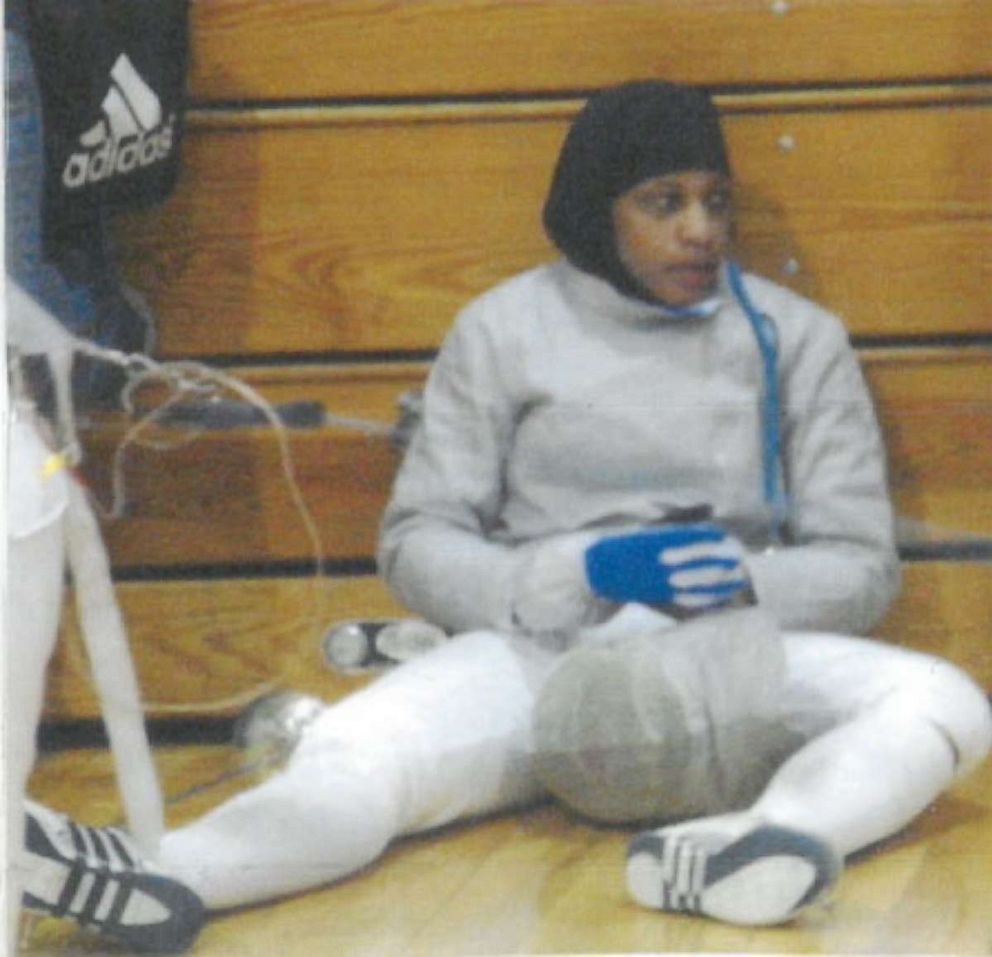
It's not easy being the first
Muhammad took up fencing as a teenager -- the sport she would eventually grow up to medal in during the Olympic Games.
"I was drawn to fencing because of the uniforms," she explained. In the sport, athletes are fully covered and Muhammad could wear a hijab, both important factors that adhere to the traditional Muslim dress for women.
"I always struggled in finding a uniform that fit my religious beliefs as a Muslim."
Muhammad recalled friends teasing her in volleyball because she had to wear sweatpants.
But in fencing, "I immediately felt a sense of belonging because I had the opportunity to look like my teammates," Muhammad explained.
As a teenager, there were no plans for her to pursue fencing professionally. Muhammad said that if someone told her she might medal in the sport, "I would've thought they were crazy."
"It's not easy being one of very few in a space ... but breaking barriers, not just for you, but for those around you, I think that makes the journey a lot easier," she added.
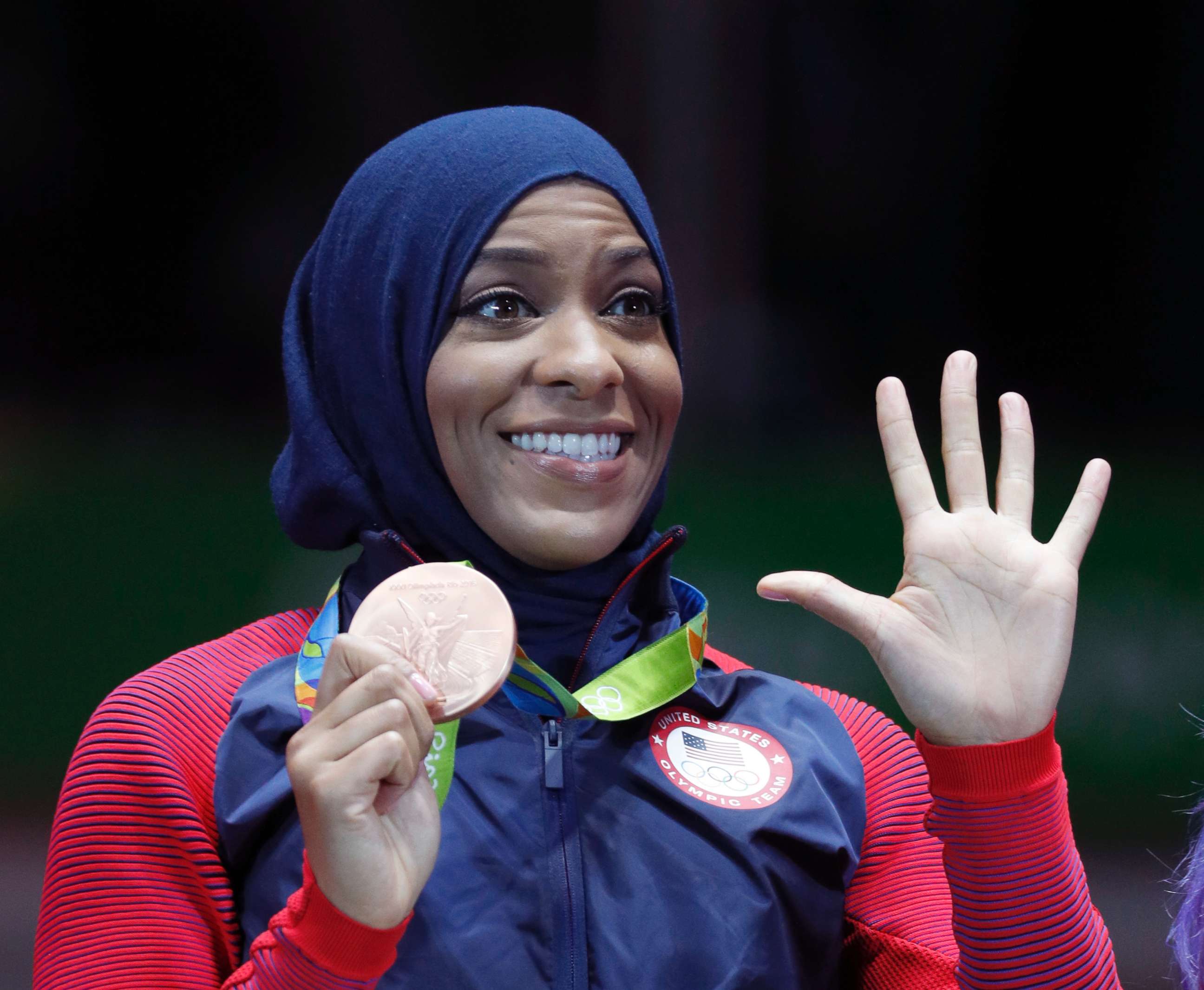
Everything just aligns
At the 2016 Summer Olympics, Muhammad became both the first woman to wear a hijab as a part of Team USA and the first female Muslim-American to earn a medal.
Muhammad calls the moment of her winning the bronze medal as part of the sabre fencing category for Team USA one of the "most memorable moments" of her life.
"It's one of those 'pinch-me' moments that's almost indescribable," she said.
"It is something that you work towards ... for a really long time. It feels like for a lifetime," Muhammad added.
The athlete said this moment took years of hard work, heartache and even tears, but she's extremely thankful.
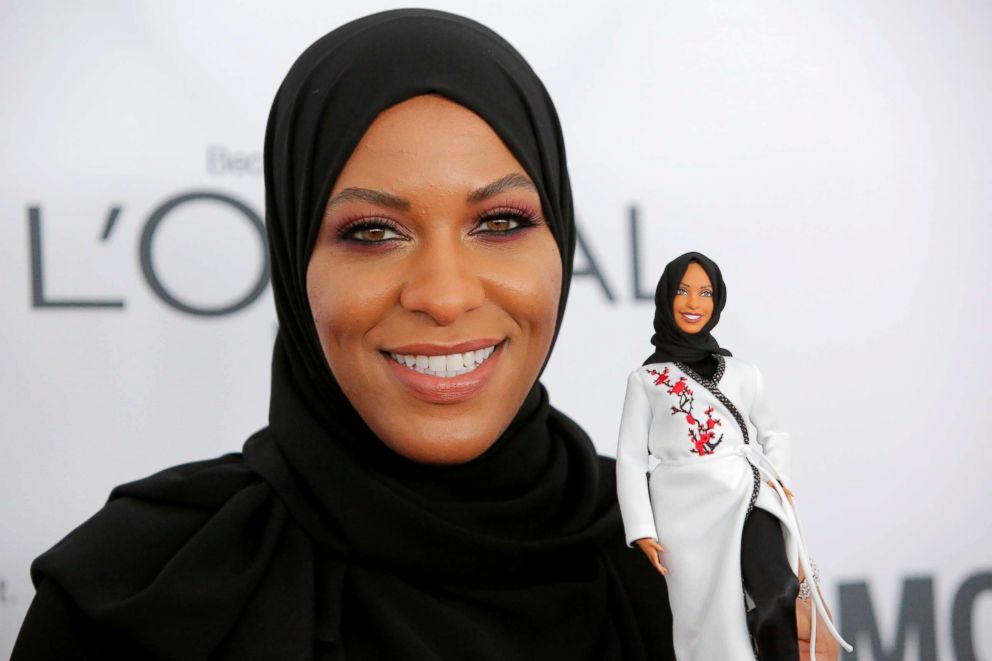
If you can dream it, you can be it
Like any typical American girl, Muhammad grew up playing with Barbies -- in fact, the 32-year-old calls even herself a "Barbie queen!"
She recalled her mom would only buy black or brown Barbie dolls for her and her sisters to play with as "her way for us to see ourselves represented in something as simple as doll play."
In 2016, Barbie honored Muhammad by creating a doll in her likeness as part of the "Mattel Shero" program.
"[The program] takes different women who have broken barriers in their respective fields," she explained to "GMA," creating a set of dolls that are inclusive, accomplished and positive role models young girls can look up to.
Muhammad hopes that through the "Mattel Shero" program, they can "continue to push the imagination of our youth of tomorrow, encourage them and show them that they can be anything they want."
The reward outweighs the risk
As if being a record-breaking athlete wasn't enough, Muhammad also launched a clothing line, Louella, with her siblings in 2014.
Louella aims to bring trendy and hip clothing to the modest fashion industry.
"There weren't any American fashion industries wearing modest, fashionable clothes that my sisters or I wanted to wear," she explained.
Muhammad is extremely proud of the fact that Louella is by women and for women.
"We are a female-owned company. We work with female manufacturers who employ women to sew the items," she said.
Muhammad doesn't want anyone to struggle like she did growing up when she had to shop at stores and layer clothes in order to achieve a modest look.
"You are going to make mistakes, but the reward outweighs the risk," Muhammad said of what she wished she could tell herself when she was launching Louella in 2014.
Muhammad is adamant that this line isn't just for Muslim women, "but for women in general who want to be modest and fashionable in what they wear."
